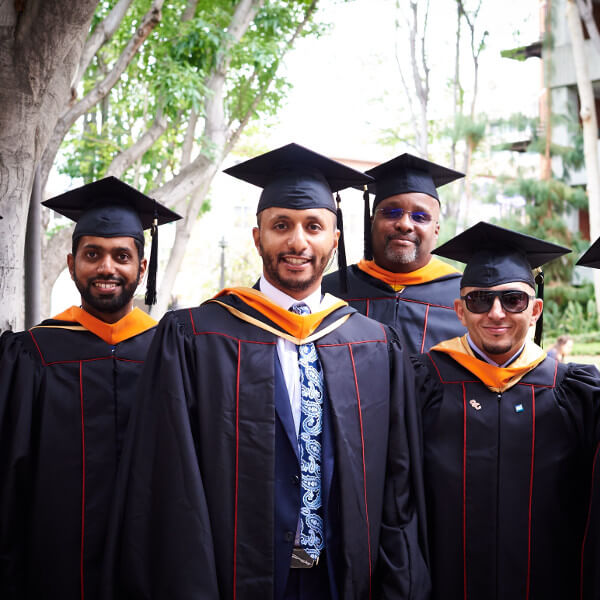UAE Scholarships at USC: A Game-Changer for Global Energy Policy?
When you hear “global energy policy,” what comes to mind? Probably oil prices, renewable energy shifts, or big industry decisions. But what if I told you that a quiet but powerful force shaping the future of energy comes from an unexpected place—scholarships? Specifically, UAE-funded scholarships at the University of Southern California (USC).
Sounds surprising, right? But when you look closer, it makes perfect sense.
Let’s dig into how the UAE is investing in education at USC and why this is subtly influencing the global energy landscape.
Why is the UAE investing in scholarships at USC?
The UAE is one of the biggest players in the global oil and gas market. It’s not just about exporting crude—it’s about strategy, influence, and shaping the next generation of energy experts. And what better way to do that than by funding students who will eventually become the decision-makers?
1. Strengthening Ties with the U.S.
The UAE and the United States have long-standing economic and political partnerships, especially in the energy sector. By funding students at USC, the UAE ensures that future energy leaders understand both Middle Eastern and Western energy markets. It’s a win-win for both countries.
2. Creating a Skilled Workforce
Let’s be honest—energy policy is complicated. The industry needs professionals who understand economics, geopolitics, and sustainability. UAE scholarships at USC focus on petroleum engineering, environmental science, and energy management, ensuring a steady pipeline of highly skilled professionals who will shape future policies.
3. Promoting UAE’s Global Energy Vision
The UAE isn’t just about oil anymore. With initiatives like Masdar and the UAE Energy Strategy 2050, the country is pushing toward clean energy leadership. Through scholarships, it nurtures talent that can balance traditional oil expertise with the demands of a changing world.

The Real Impact: How These Scholarships Are Influencing Energy Policy
It’s easy to think that scholarships are just financial aid, but in reality, they have a huge impact on how energy policies are shaped globally.
1. USC Graduates Leading Energy Firms
Many USC graduates, especially those from UAE-funded programs, end up in key positions within global energy firms. Some work with ADNOC (Abu Dhabi National Oil Company), while others take roles in ExxonMobil, Chevron, and BP. Their knowledge of both Western and Middle Eastern energy policies makes them invaluable assets.
2. Bridging East and West in Energy Dialogues
Energy policy isn’t just about science—it’s about diplomacy. Many graduates from UAE-funded programs at USC become consultants or policymakers who help bridge the gap between Middle Eastern oil strategies and Western regulatory frameworks.
3. Encouraging Innovation in Renewable Energy
A major chunk of UAE scholarships at USC go to students focusing on renewable energy and sustainability. The UAE is investing billions into solar, hydrogen, and nuclear power. Having USC-trained experts in these fields ensures that the shift to cleaner energy is both practical and profitable. Also Read>>
Meet the Scholars: Real Stories, Real Impact
Ahmed’s Journey from Abu Dhabi to USC
Ahmed, a young engineer from Abu Dhabi, received a full scholarship to USC’s Viterbi School of Engineering. He specialized in sustainable energy and now works for Masdar, helping the UAE transition to renewables.
Would he have had this opportunity without the scholarship? Maybe. But would he have gained the international exposure needed to drive global change? Probably not.
Maria’s Role in Global Energy Policy
Maria, originally from Venezuela, was awarded a UAE-backed scholarship to study international energy policy at USC. She now works for an energy think tank in Washington, D.C., influencing policies that impact both OPEC countries and renewable energy markets. Her understanding of Middle Eastern oil dynamics, thanks to her UAE-funded education, makes her a crucial voice in global discussions.
Challenges & Criticisms: Is There a Catch?
Like any major investment, UAE-funded scholarships at USC aren’t without scrutiny. Some critics argue that this is a soft power strategy—a way for the UAE to influence U.S. energy policies in its favor. Others worry that the focus remains too heavily on fossil fuels rather than fully committing to renewables.
But here’s the thing: Even if these scholarships are strategic, they still provide undeniable value. They’re creating educated, well-rounded professionals who can tackle real-world energy challenges. And in a world that’s constantly shifting between oil dependency and sustainability goals, having experts who understand both sides is invaluable.
Final Thoughts: A Quiet Yet Powerful Shift in Global Energy
The UAE’s scholarships at USC might not make daily headlines, but their impact is undeniable. They’re creating a new generation of energy leaders—professionals who understand the intricate balance between fossil fuels and sustainability, between Middle Eastern policies and Western regulations.
So, is this just a financial investment, or is it a long-term strategy to shape global energy policy? Honestly, it’s both.
And if you’re a student passionate about the future of energy, maybe it’s time to explore these opportunities yourself.
What Do You Think? Let’s Talk!
Are UAE-funded scholarships at USC a game-changer or just another soft power move? Drop your thoughts in the comments or share this with someone who’d find it interesting!



